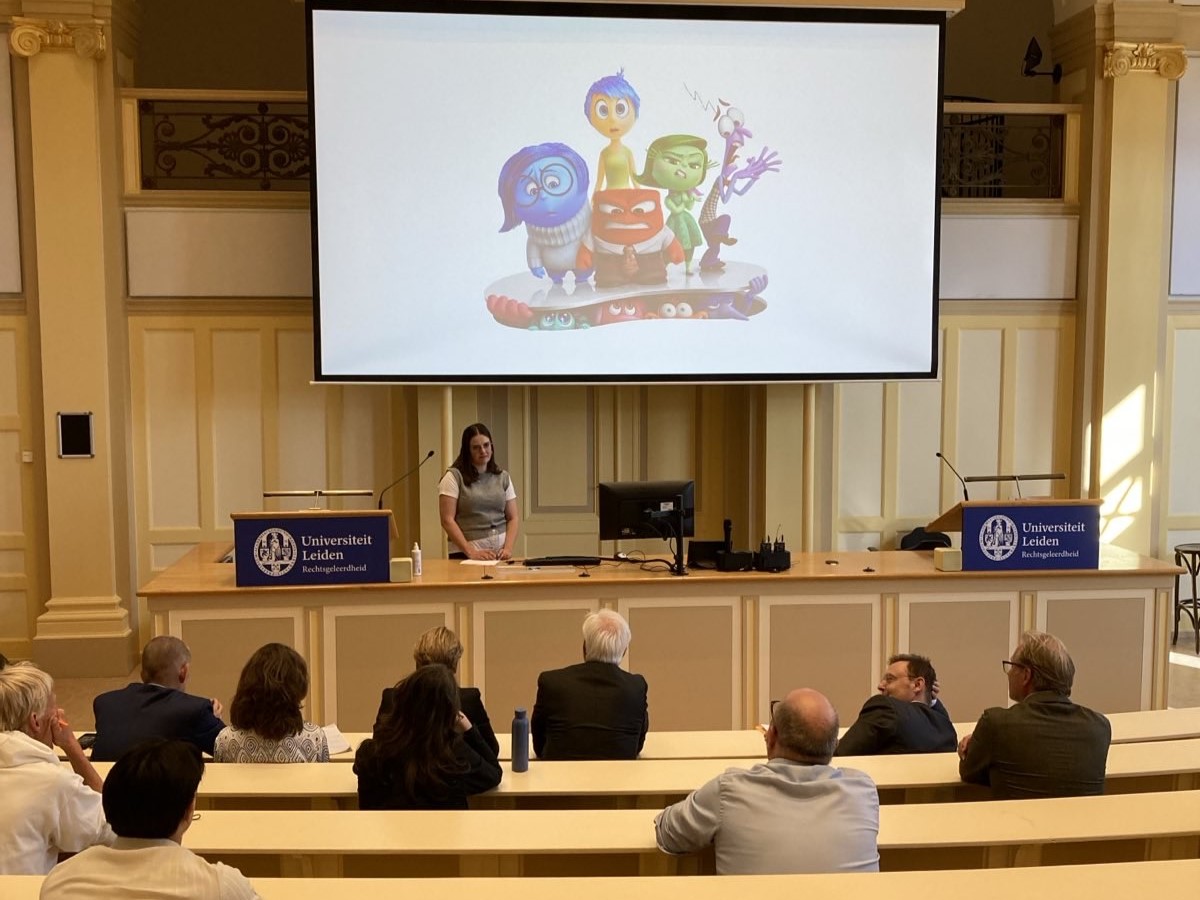Honorable mentions for Hannah Appel and Kimmy Shah (LDT) at VPR/VPRA Scriptieprijs 2024
On Friday 20 September, the Dutch associations for Privacy Law (VPR) and for Privacy Law Attorneys (VPR-A) announced their annual thesis award winner in a ceremony held in the Lorentz Lecture Hall at Leiden Law School. We are very proud that Kimmy Shah and Hannah Appel, recent graduates of the Advanced LL.M. in Law and Digital Technologies, were nominated for the thesis they wrote as part of our programme.
The ceremony consisted of an introduction by data-ethicist and philosopher Piek Knijf (Filosofie in Actie) on the broader dimensions of privacy, followed by short presentations by the three nominees of their thesis research.
Kimmy Shah presented her thesis: 'I Think, Therefore They Know. Exploring the Challenge to the Freedom of Thought by Online Commercial Practices and the Regulatory Implications for the GDPR in the European Union'. In her research, she connects the fundamental right of freedom of thought to the right to data protection, and analyses how the gaps in protection of freedom of thought she identified in the General Data Protection Regulation, may or may not be addressed by the upcoming AI Act.
-

Hannah Appel -

Kimmy Shah
Hannah Appel presented her thesis: 'Protecting Human Digiity in the Age of Emotion Recognition: Analysing the Effectiveness of Specific Transparancy un der the AI Act'. Her research consists of a critical analysis of the technologies called 'emotion recognition systems', their impacts on human dignity as the most basic fundamental right, and the extent to which the transparency obligations required in upcoming AI Act offer effective protections - not just in theory, but also in the experience of those subjected to these technologies. For this she conducted a survey on what kind of protection measures the general population would think to be appropriate and effective - which in itself served in increasing awareness on the often obfuscated workings and possible impacts of such systems.
Both Law and Digital Technologies theses received an honorable mention (and 500 euros each), with great appreciation from the jury for the ambition and innovativeness of the research - and that within a rather restricted word limit of 15,000 words. The winner was the Dutch-language thesis by Roosmarijn Hobbelen (UvA), on the question whether Art. 80 of the Dutch implementation of the GDPR (AVG) allows for class action claims (WAMCA).
An extended report of the award ceremony and the work of the two honorable mentions and the winning research project appeared on Netkwesties (in Dutch).
See the website of VPR/VPRA Scriptieprijs 2024 for more information.
